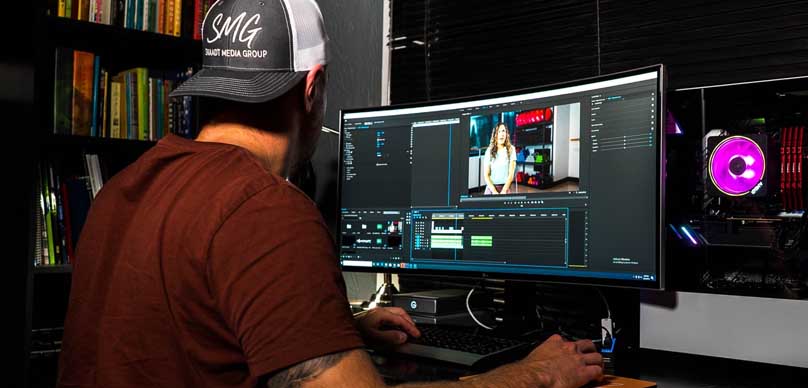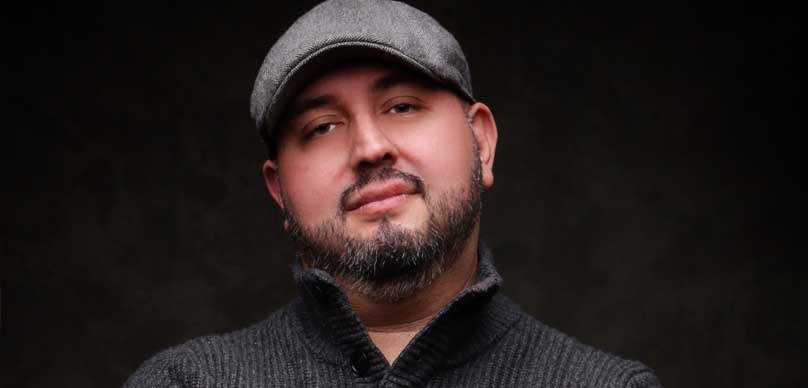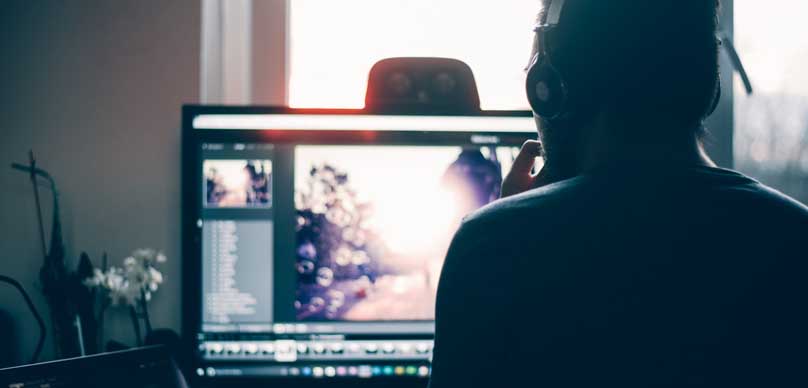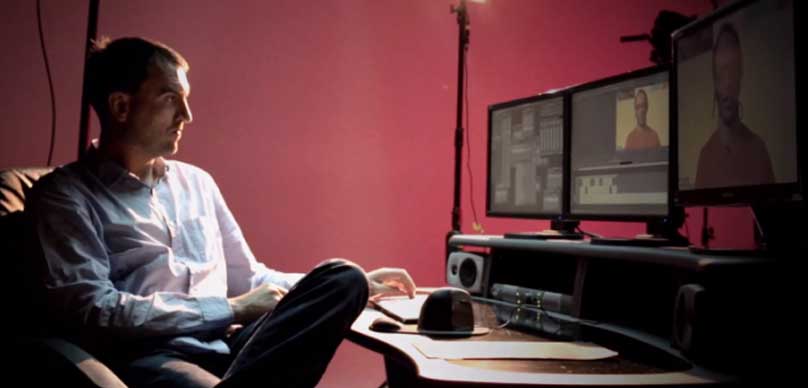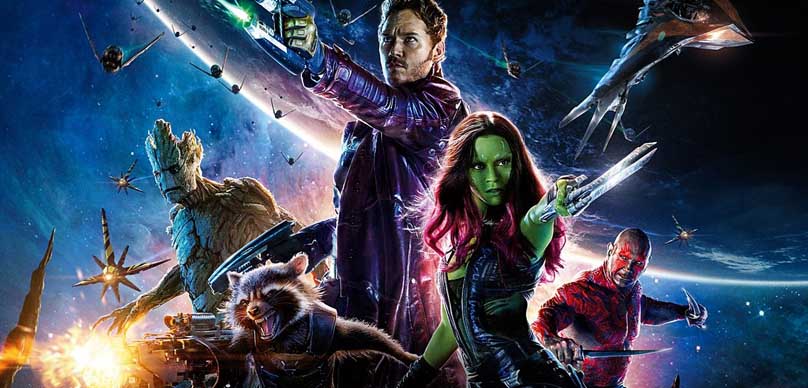So how can a Post-Production Supervisor save your butt? Well, I’ve been a Post-Production Supervisor for over 15 years and have seen a lot of indie filmmakers get beaten up, taken advantage of and just plain ripped off in the post-production process.
In short, the Post-Production Supervisor is there to protect the film or project from going over budget, getting ripped off and making sure everything is done on time and budget.
Here is the official definition of a Post-Production Supervisor:
Post-Production Supervisors are responsible for the post production process, during which they maintain clarity of information and good channels of communication between the producer, editor, supervising sound editor, the facilities companies (such as film labs, CGI studios and negative cutters) and the production accountant.
The Post-Production Supervisor has a pivotal role in ensuring that the film’s post-production budget is manageable and doable and that all deadlines are met.
The role of the Post-Production Supervisor varies depending on the type of film or project and the all-important budget.
On a big-budget, visual effects heavy film projects, Post-Production Supervisors start work during pre-production, going as an in-between with the VFX House and ensuring that the producer is aware of all the creative and budgetary considerations and how they may impact on the all-important post-production period.
I know many Post-Production Supervisors who work on huge studio tent poles and let’s just say they are aging fast! It’s a high-stress job, to say the least.
On smaller budget film projects they also advise on the limitations that may need to be applied to the shoot in order to finish it, as well as providing an overall picture of what can be realistically achieved in post-production within the budget.
Take a listen as I describe what a Post-Production Supervisor does, what to look for when hiring one and how they can save you money in post-production.
Right-click here to download the MP3
Alex Ferrari 0:00
Now guys, today we're going to talk about post production supervisors and what they do, I've been a post production supervisor now going on about 10 years or so a little bit more probably. And I've worked on multiple different projects, from varying sizes, all the three little short films, music, videos, commercials, all the way up to three to $5 million feature films, working in the capacity of a post production supervisor. So I know a lot of independent filmmakers really generally don't have money to hire post production supervisor. But it's extremely important to have a post production supervisor on any size project if you can afford it. And I've already kind of went over that and nauseum in my other podcast episode, Episode 14, post production workflow, understand it or die. So I wanted to kind of go over what a post production supervisor does, and what you should look for in a post production supervisor. When you're hiring one, post production supervisors generally are there to help you or guide you through the post production process. Now, if you hire a post production supervisor, or at least consult with one prior to your production, they can definitely help you out dramatically. So perfect example is I've had a lot of movies brought to me towards the end, obviously, in post production, so they've already shot everything, they've already made all those those crucial decisions prior to get into post production, which then they throw on me and they're like, Okay, I need you to make this workflow work. I'm like, well, this is not going to work, this is going to cost you this, this is going to cost you that where if they would have just come to me in pre production, it could have saved them a tremendous amount of time and money. What I mean is this. So let's say you're starting out a project and you come to a point you consult a post production supervisor and they go and you go, I want to shoot this on a red camera. Well, if you're going to shoot on on a red camera, I'm going to ask you a bunch of questions in regards to how qualified your dp is, what kind of red camera you shooting out what kind of resolution you're shooting at, and then work you through the process of post production going down the line of the pipeline. So if you're going to shoot read, what are you going to edit on who's going to be editing it and is there is that editor technically competent, or they're just a creative editor, if they're going to edit on avid, okay, great. So we're going to edit on avid now getting the EDL out of avida, we're going to go to a dementia, we're going to be able to go to a da Vinci, or we're going to go to a baselight all this kind of information, I have to as a post production supervisor plan out all the way down the line, so everything runs smoothly, and it doesn't cost the filmmaker or the production any more money than it should and that everything runs very, very smoothly. So that's that's one step of things of what a post production supervisor does, it kind of organizes the workflow for you a good super a good post production supervisor does this. Now, another thing a post production supervisor does is also organizes everybody and kind of is like the, the director of post production essentially. So they're organizing and scheduling everything creating a schedule, like okay, by this date, we're going to lock pictures locked that this day, we're going to have first edit done eight weeks later this date, and then we have another week or two for re cuts. And then we have another week or two before we find a lock. Once we find a lock, then we go into color and visual effects. I'll get to visual effects in a second. Once we get that in, I need these elements in by this date and this date in this day. And they're just scheduling everything for you. Because as a filmmaker, it's very difficult, if not impossible, unless you have post production, post production background to kind of organize all this. And that's where a lot of filmmakers just fall flat on their face. And I've seen it so so many times in my in my my company, my post company, filmmakers coming in the door with like, well I just shot this and this and that and they just didn't understand the full the full scope of the workflow and not understanding what a post production supervisor could do for them. So post production supervisors also work with budget and understanding the budget of post production and what things are going to cost so they're in charge of hiring editors in in a perfect world. They're in charge of hiring the editors or at least organizing and scheduling the editors, hiring runners assistance, di T's, organizing anything that deals with post production there, their hands are in it. So if you have Have a $30,000 budget, it's their job to get post production done for that $30,000 budget or $5,000 budget depending on what it is. They also organize audio and audio is a whole other Gambit. You know, it's it's I don't do audio personally in my company. But I've obviously worked with tons of different audio houses. And audio has a whole other set of deliverables, all sets of workflow that needs to happen in order to get things done. And this is the job of the post production supervisor to not only take care of it all, but at least with me, I always like to educate filmmakers that I work with, and producers that I work with. So they're more educated in the process going down the line on their next project and their next project cuz it just makes life easier. for everybody. It's always wonderful for me as a post person to get a project that technically has no issues, that I could just kind of run through it and just do my job as opposed to having putting out fires constantly, because filmmakers were just uninformed, or didn't know or just ignorant to the process. And that's fine. I mean, but it's always a pleasure working with professionals who understand the workflow and understand what we do. And it's great to have that experience. So it's my job as at least at least the way I look at is my job as a post production supervisor, colorist editor, what have you to educate filmmakers who are working with me. So as they go forward in their careers, they become more educated and become better at what they do. And hopefully, later on, hire me again, or hire my company, again, to do more work for them in the future, because I had a positive experience. Now also a post production supervisor has relationships, like I have relationships with different audio houses, different visual effects, companies and visual effects artists and things like that, where I can actually pull together a team fairly quickly and at a very affordable cost. Because I have those contacts, I have those relationships. And that's something that you're paying for when you hire post production supervisor is those contacts there. They're the ones that are going to be able to like, basically, if you say, look, I got five grand to do color, you're going to go well, I know I got my 15,000 20,000 $50,000 guy, and I got a $5,000 guy. And let me see if I can get that $15,000 guy to come down to 5000, or work with the 5000 and see if we can make sure make sure the quality that he could put out is equivalent to the 15,000. This is jobs. This is the job of the post production supervisor as well to be able to negotiate these deals to be able to create create the most production value for the dollar. Now another thing that post production supervisor does, he puts out fires a lots of fires all the time. Anytime you're dealing with these digital digital workflows from red or airy, Blackmagic, gh, any of the DSLRs any of the workflows that are coming in, there's always going to be problems, there's always going to be emergencies, things that just don't go right. And unless you technically have the expertise to handle it, it's really helpful to have a post production supervisor on board. Sometimes, filmmakers lean on their editors, because editors nowadays are more technically more have more prowess in the technical aspects of filmmaking and post production. But when you start getting into some deep stuff, you know, they might get into the weeds and be a little bit over their head. So post production supervisors are there to get you out of the weeds. So that's another thing that a post production supervisor does and can save your butt while working in on your film. Now another part of the post production supervisors job is deliverables, being able to get deliverables out to whatever your final outputs going to be for your film, your project, your television show for whatever form of media you're going out to, we're going to stick with film for right now. So depending on what your final outputs going to be for K DCP, which is a digital cinema package for theatrical digital distribution, if it's going to be an H DSR for 1080 p Master, depending on the different if you're doing to a distributor, if you're doing it yourself, there's so many different variables that are in play that if you don't understand a lot of the stuff that I'm just talking about here, it could end up costing you 1000s and 1000s of dollars because you might do a whole bunch of deliverables because someone told you to because they're trying to make money off of you and you really don't need them. So one piece of advice I can give you is don't do deliverables until you absolutely positively need them. Your deliverable obviously at the end will be a digital deliverable which will be a quick time with a pro res Quick Time is more than enough out of 4k resolution is fine and you can have all your audio deliverables embedded in that same quick time. And as far as dcps HTS Rs, beta SPS for God's extra Digi betas, any of those other kind of deliverables that you might need. Wait until you absolutely need to have them before you spend the money to do that. Because a lot of times filmmakers and I've seen this happen, they they'll they'll just go on spend 1520 grand on deliverables, and then they're just sitting there on a shelf, they're never again used, they're not getting, you know, just wait, wait until the last minute that you can actually have to spend the money to spend it. So that's one piece of advice. But the post production supervisor will guide you in your deliverables depending on what your final outputs going to be. So again, if you're going to be doing self distribution, going through a VA Jack's, or Vimeo, that's one set of distribution, one set of deliverables, if you're going to be going to you know, you need a screener for Sundance, that's going to be another set of deliverables if you need if you're going to a theatrical through tugg. And you're going to be doing a self distributors, yourself distributing a theatrical run by yourself, then that's another set of deliverables. So there's all sorts of different deliverables. And this is again, a minefield of different options that can cost you 1000s and 1000s of dollars unless you do the research and understand what it all is, or consult or hire a post production supervisor to kind of guide you through this process. And one final tip here when hiring a post production supervisor, you should always check their credentials, check their IMDb and their resume to see what kind of budget levels they have been though IMDb can be adjust those budget levels can be adjusted fairly easily on IMDB, so something that says a cost $7 million, or $5 million, really could have cost half a million dollars, and they just put $7 million dollars on there to make themselves look bigger. So that does happen. I've seen that happen many times. So but check at least what they've done. And if you can't call a filmmaker who's worked with them prior to see how their experience was, that would be very, very beneficial. Always try to find someone that you trust, and that has experienced to do it. So you don't get you know, I make sure they are actual post production supervisors. And then I just editor saying oh monitor, but I was supposed to supervise, make sure that they have credits, make sure they have experience doing it because post production supervisor is a very important position in your crew. And they will either can bury you, or they can help you sail across that sea with calm waters. So or if not, that ship can sink very, very quickly if you hire the wrong guy. So now you can get all the links and things I was talking about in the show notes at indie film hustle.com forward slash zero 32. And there I'll have all the links of anything we talked about in this episode. I hope this was beneficial to you guys a little bit I do, I'm gonna do a shameless plug. I am obviously a post production supervisor, as well my company num robot does this kind of work as well. And if you need any consulting if you don't have the money to book to hire a post production supervisor throughout the entire process, just paying an hour or two of someone's time at the beginning of the process is probably the best money you'll spend in production. So you could also always go to indie film, hustle, calm forward slash consulting, if you want to have me consult on any of your projects. So that's my shameless plug. Thank you. I hope you guys learned a lot on this episode. Next week I'm going to be doing a visual effects supervisor episode to talk about how to work with a visual effects supervisor and what a visual effects supervisor does. So please head over to filmmaking podcast calm and leave us an honest review of the show. It greatly helps our rankings in iTunes. So thanks again so much guys. Keep that hustle going keep that dream alive and I'll talk to you soon.
Sign up to receive email updates
Enter your name and email address below and I'll send you periodic updates about the podcast.
YOUTUBE VIDEO
LINKS
- Post Production Consulting
- IFH 014: Post Production Workflow – Understand It or DIE!
- Tugg: Theatrical Self Distribution
- IFH: Guerrilla Indie Film School
- USC Film School’s ONLY Online Course: Directing the Actor
SPONSORS
- Bulletproof Script Coverage – Get Your Screenplay Read by Hollywood Professionals
- Audible – Get a Free Filmmaking or Screenwriting Audiobook
- Rev.com – $1.25 Closed Captions for Indie Filmmakers – Rev ($10 Off Your First Order)

